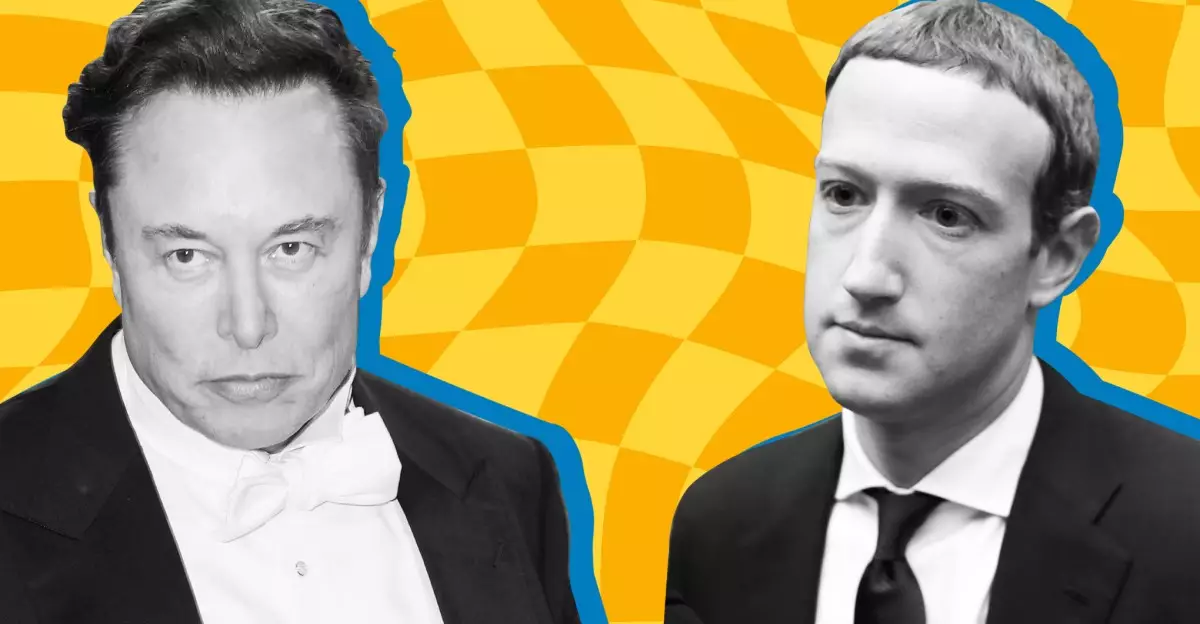In a bizarre twist appropriate for California’s love of satire, crosswalk buttons in the state’s urban centers have been equipped with the artificially generated voices of none other than Elon Musk and Mark Zuckerberg. This odd event unfolds not as a mere technological glitch but as a commentary on the current state of technology and the power figures within the industry. Instead of the reassuring tones instructing pedestrians on when to cross, drivers and walkers are greeted by the satirical quips of the two tech giants. From the absurdity of Musk’s humorous pleas for companionship to Zuckerberg’s tongue-in-cheek acknowledgments of his company’s controversies, this stunt invites analysis of both technology’s role in society and the follies of its leaders.
Enter the Digital Satirist
While the motivation behind this peculiar hijacking of crosswalk buttons is still unclear, the ramifications are strikingly rich. The imitation of Musk and Zuckerberg’s voices isn’t merely entertainment; it’s satire designed to critique the very essence of what these leaders represent. In a world increasingly saturated with AI, technologies that were once considered tools of convenience are being leveraged in ways that force us to confront the ethical dilemmas brought forth by their creators. Imagine crossing a street, only to be cheekily welcomed by Musk’s cynical remarks about loneliness while simultaneously experiencing the humorously ominous warnings from Zuckerberg about “cooking our grandparents’ brains with AI slop.” This absurdity strikes a chord, holding a mirror to the sentiments many feel toward technology’s encroachment into daily life.
Community Responses to AI Shenanigans
The incident elicited mixed responses from the communities in Palo Alto, Redwood City, and Menlo Park, where the malfunctioning buttons were discovered. A spokesperson in Palo Alto disclosed that twelve intersections had fallen victim to this brief hijacking, confirming that city employees quickly disabled the voice features for an essential safety measure. It’s a priority to ensure those with visual impairments receive the proper notifications to navigate the streets safely. However, one must wonder if, amid the chaos, there lies a collective yearning for levity – a chance to laugh at the relentless progression of technology and its often-unfeeling impact on society.
Furthermore, the discussions surrounding the incident reveal a growing skepticism regarding tech leaders and their ethical responsibilities. Musk and Zuckerberg have long been icons of innovation, yet coming face-to-face with the humorous critique reflects a vulnerable side that these public figures rarely expose. This comedic moment of installation and criticism serves not just as entertainment but as a spur for a broader conversation about accountability in our evolving digital landscape.
A Reflection of Societal Concerns
Amid the surrealism of these AI-generated messages lays a profound commentary on societal issues, from democracy’s integrity to the implications of AI in modern life. The voices boldly name check serious topics, acknowledging the influence tech companies exert over democracies and social dynamics. Musk’s joke about wanting friends highlights the isolation that even billionaires experience, while Zuckerberg’s cynical take reflects an acknowledgment of the backlash his company experiences due to its policies that seem less human-centric and more profit-driven.
The humorous tones and satirical content unravel deeper anxieties surrounding the tech industry. As creators of game-changing technologies, Musk and Zuckerberg have the power to influence the very fabric of society, yet they often elude accountability when things go awry. Here lies an essential realization: If today’s technology can produce laughter through satire, then perhaps it can also evoke discussions about the ethics behind its creation and application.
Redefining Engagement Through Humor
As people share videos of these amusing moments across social media, the mockery of Musk and Zuckerberg morphs into a rallying point for community engagement. It represents the rediscovery of humor in a world increasingly dominated by anxiety, reflecting a desire for more relatable figures in tech leadership. People’s reactions, ranging from amusement to frustration about the misuse of technology, signify a collective acknowledgment of the absurdity present in the digital age.
This incident reveals that while technology serves specific practical functions, it should also foster connections—albeit through satirical relations in this case. As we rely on tech for convenience and connectivity, the intersection of AI-generated satire and day-to-day experiences prompts us to question the narratives surrounding these powerful figures. Are they merely creators, or are they storytellers in their own right, shaping the way we perceive and interact with technology? Instead of waiting for a serious dialogue about tech ethics, this intersection of humor and technology urges us toward a more engaging conversation—a necessary pivot in a world on the brink of AI revolution.

